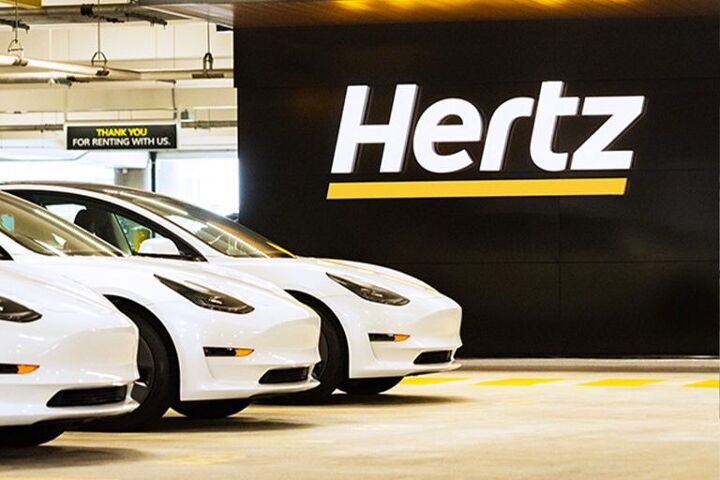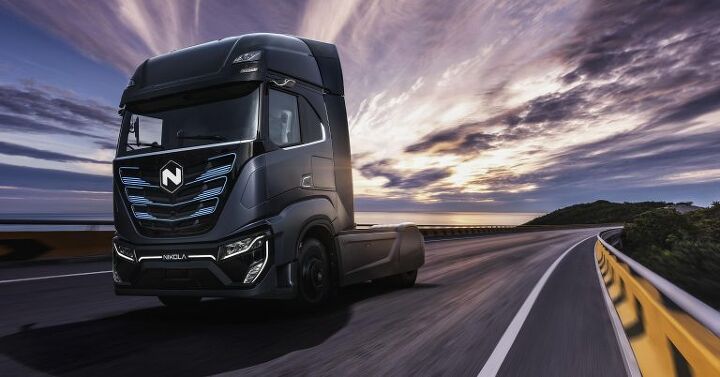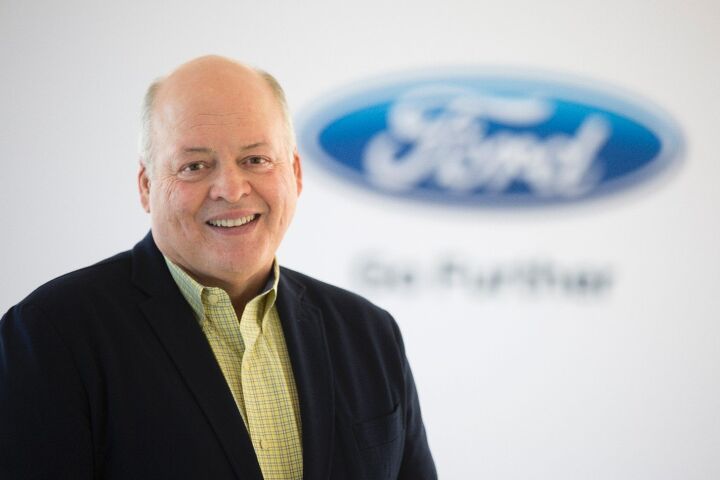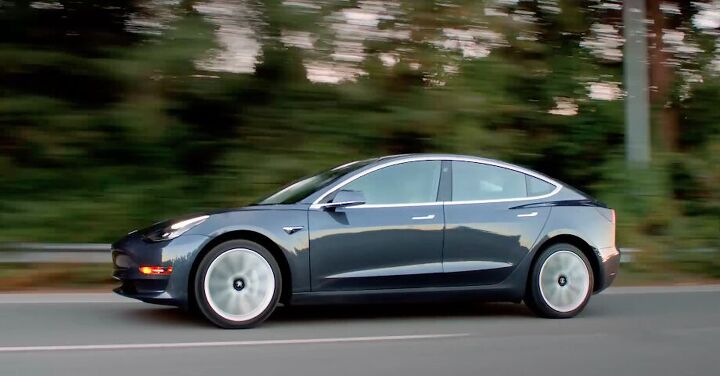#SharePrice
Elon Musk Sells Tesla Stock Worth $4 Billion
Elon Musk has sold an estimated $4 billion worth of Tesla stock days this week after reaching a $44 billion deal to purchase Twitter. Regulatory filing show the CEO offloading nearly 4.5 million shares of the automaker between April 26th and the 27th.
The timing of the transaction makes the why of the situation fairly obvious. Despite the resulting political hubbub, Musk reached an agreement on April 25th to acquire Twitter. The deal was tied up with tens of billions of dollars worth of his Tesla shares to support margin loans after the executive said he could come up with $21 billion in equity. While some questioned where the funding would come from, others claimed it was obvious.
Elon Musk Continues Selling Tesla Shares
Tesla CEO Elon Musk has sold another 934,091 shares of the company, worth a hefty $1.01 billion, as a way to meet tax obligations related to the exercise of options to buy 2.1 million shares. But it’s just a drop in the bucket, as Mr. Musk’s offloading of Tesla stock has surpassed $10 billion overall. That’s roughly 10.1 million shares since the CEO asked Twitter users at the start of November whether or not he should dump 10 percent of his existing stake in the company following its big move to Texas.
Elon Musk Says Tesla-Hertz Deal Has No Contract
Tesla shares took a dip on Tuesday after Tesla CEO Elon Musk tweeted that its deal to provide Hertz with 100,000 electric vehicles had not been ratified with the signing of a contract. While this normally means the deal had not been finalized, the language used by Musk almost makes it sound like whatever Hertz had been claiming previously didn’t even matter.
“You’re welcome! If any of this is based on Hertz, I’d like to emphasize that no contract has been signed yet,” the CEO said in reference to Tesla’s share price pitching upwards by over 8 percent. “Tesla has far more demand than production, therefore we will only sell cars to Hertz for the same margin as to consumers. Hertz deal has zero effect on our economics.”
Nikola Responds to Criticisms of Fraud
Following a scathing report from Hindenburg Research that called Nikola a fraudulent company largely dependent upon the blind excitement surrounding electric vehicles, the accused has finally issued a response. On Monday, Nikola released a bulleted letter suggesting the report was the act of an opportunistic short seller that was attempting to take advantage of the period immediately proceeding the announced partnership with General Motors. While Hindenburg didn’t exactly hide that aspect of itself in its own report, it frames the business as only profiting off companies that weren’t above board to begin with. It also received support from Citron Research, which said it likewise thought Nikola needed to be scoped out by the Securities and Exchange Commission (SEC) and promised to help pay for half of any legal fees incurred as a result of Hindenburg’s reporting.
Meanwhile, Nikola was crafting its rebuttal after founder Trevor Milton explained he had to wait on a comprehensive response because he was already in contact with the SEC. As his constant Twitter updates started to become counterproductive, this was likely a wise decision. The response dropped on Monday, clearing a handful of items up while making a bunch of other aspects seem even more suspect.
Scathing Report Accuses Nikola of Fraud
While we’ve suspected that electric vehicle startups and green tech, in general, is probably a little overvalued, we’ve never accused anyone of outright fraud. Burgeoning automakers have a tendency to over promise and under deliver. Throughout history, this has occasionally gotten them into serious trouble. But it’s also how the game is played, especially when you’re new to the scene and need to distinguish yourself from giant entities who would just as soon crush you in lieu of risking the eventual competition. Nikola is a perfect example of this and built a hype train so swift that legacy brands could only hope to buy it out or invest and share in the fruits of its labor before it sped away.
But what if it wasn’t ever growing any industrial fruit?
That’s the claim being made by Hindenburg Research — which specializes in short selling, pointing to firms on the cusp of financial disaster (hence the name), and attempting to bust businesses the Securities and Exchange Commission (SEC) might be interested in. The financial research firm has suggested that Nikola founder Trevor Milton had misrepresented what the company was actually capable of in terms of product, with the intent to mislead investors into thinking the company should be incredibly valuable. It reads like a hit piece and was accused by Milton of being just that. However, there are issues brought up in the report that are still worth examining.
Meow: Another Double Dose of Schadenfreude From Carlos Ghosn
Shortly after his high-flying escape from Japanese semi-captivity in late 2018, former Renault-Nissan Alliance boss Carlos Ghosn got catty, marveling at what became of those two automakers after they dropped him from the phone directory.
Despite the coronavirus pandemic sinking profits and sales across the globe, Ghosn is pretty sure he knows what’s really to blame for Nissan’s current misfortunes.
Tesla Now the Earth's Most Valuable Automaker
With the automotive industry seeing losses across the board, most investors could do nothing but watch in horror as sales reports showed the post-lockdown recovery had not yet begun. But there was a faction that ignored the carnage taking place around them and continued to pump money into their preferred auto brand until it became the most valuable automaker in the world.
While it’s a sin for you not to know, we are obviously discussing Tesla Motors — the infallible, gleaming beacon of modern-day motoring.
The firm officially surpassed mega-giant Toyota on Wednesday, with shares trading as high as $1,228 before tapering off in the evening with a market cap of around $220 billion.
Nikola's Valuation Seems Crazy
Nikola, the Phoenix-based EV startup that hopped on the Nasdaq last week, finds itself awash in capital despite not having much to show for itself it terms of sellable product.
No matter, as it doesn’t take a sound business model or originality to thrive on Wall Street. Nikola hasn’t even seen fit to come up with a unique moniker for itself and instead uses the scraps left by Tesla Motors’ not using the full name of the inventor that serves as its inspiration. However, Nikola is designing battery/hydrogen-driven semi trailers and pickup trucks — which are the freshest fad in the industry at present. Investors took notice and pushed Nikola’s market cap past $26 billion on Monday. It just kept climbing, too, with only the eventual promise of product and profitability to spur them on.
Tesla's Stock Remains Insane
Despite it only being a little over a month into 2020, Tesla’s stock has already doubled since New Year’s. Share prices surged to over $900 before Tuesday’s trading, leaving many scratching their heads as to how one of the smallest global manufacturers manages to clean up so well on Wall Street.
Seeking answers, Bloomberg looked to industry analysts and executives from rival car manufacturers to better understand Tesla’s mojo — and determine whether all the stock heat is warranted. The gist appears to be that Elon Musk and company are simply running away with battery technology, something that’s difficult to refute. However, some claims that Tesla has surpassed what constitutes an automaker feel overblown and not entirely consistent with reality.
Ford's Earnings Show That Saving Money Can Be Expensive
Automakers find themselves a bit of a pickle right now. The shift towards “mobility” has resulted in high development costs for electric and autonomous vehicles in the midst of stagnating sales growth. There’s also a trade war hurting global demand and impacting supply chains. Ultimately, this resulted in a lackluster Q1 for many manufacturers.
Ford’s situation was symbolic of the industry’s general plight, per its 34-percent decline in net revenue for the first quarter of 2019, but it wasn’t without a warm ray of hope. The company posted a 12-percent increase in earnings (before before interest and taxes) over the same period due to North America’s consistent desire to own SUVs, crossovers, and pickups. Ford’s share price also improved, hitting the $10 mark for the first time since August of 2018 on Friday.
With all that good news, many probably wonder what caused net revenue to climb into the toilet like an overly curious ferret. As it turns out, saving money can be pretty expensive.
Lyft IPO Makes a Splash, Followed By a Flop
Despite playing host to what everyone presumed would be a very hot property, Lyft’s IPO hasn’t panned out as expected. While the company’s Friday stock debut was strong, April 1st was less promising, with Lyft’s share price slipping by nearly 12 percent in a single day. It’s now well beneath the target price, casting doubts about the financial sustainability of mobility firms.
It’s a complicated issue. Lyft was valued at more than $22 billion when it went public last week, but investors are concerned with the company’s inability to turn a profit. Last year, the ride-hailing giant posted a net loss of nearly $1 billion. With Uber likely to announce its own IPO soon (and likely face similar headwinds), many are concerned.
Ford CEO Issues No-nonsense Letter to Employees, Seeks Doubling of Profits
Ford’s chief executive, Jim Hackett, told employees Thursday evening that 2019 cannot be a repeat of last year.
“2018 was mediocre by any standard,” Hackett said in an email to employees. “Yes, we made $7 billion last year. But think of it this way: this represents a 4.4 percent operating margin, about half what we believe is an appropriate margin. So we are aiming for much closer to $14 billion.”
Despite being at the helm of The Blue Oval for nearly two years. Hackett’s Ford continues to endure a slipping share price and a market cap of 34.5 billion — substantially less than General Motors’.
“I become mad for a short time. Likely mad at myself, but also because I know we are better than that,” the CEO said of Ford’s current situation. “I know that our competition hasn’t been better than us by magic.”
Wall Street Concerned Over Ford CEO's Cautious Strategy
Remember Mark Fields, the former Ford CEO who was forced to retire due to an inability to manifest his vision of the company’s future in a timely manner? Well, it’s starting to look like Wall Street needs another sacrificial lamb. Ford’s current chief executive, Jim Hackett, appears rather appetizing.
Despite promises from company chairman Bill Ford that the automaker would see swifter decision making under Hackett, it hasn’t felt all that differing from the company’s Fieldsian days. There’s still a strong emphasis placed on transforming Ford into a mobility company with no obvious path on how to get there. While it might be a little unfair of us to slam Fields or Hackett for their inability to accurately map out the future like some mythical sage, investors expect exactly that. As a result, Ford’s stock price has continued to tumble.
Norway's Wealth Fund Issues Savage Burn On Tesla
Save for some uplifting production news, Tesla Motors is still fighting an uphill battle. CEO Elon Musk’s earlier claim that the company would go private has gotten him into trouble with the Securities Exchange Commission — since it looks as if the automaker hasn’t procured the necessary funding to make that happen.
However it doesn’t appear as if Norway’s sovereign wealth fund will be the outlet to pick up that tab. Trond Grande, deputy CEO of the Norwegian fund, declined to say whether Tesla had approached the fund about going private. “We don’t have a view on that,” he said before adding “We want to be invested in companies that make money.”
Elon Musk Takes Heat for Poorly Timed April Fools' Joke, Remaining Auto Pranks Boring
April Fools’ Day is a great holiday when you’re 12 years old but, as an adult, there are only so many people you can trick into drinking spoiled milk outside of your own family without getting into trouble. The world just doesn’t have the same level of patience for a matured prankster. Corporate foolery is even less palatable, usually because it’s far too tame to be genuinely entertaining, or results in some social blunder highlighting a genuine problem.
The automotive industry frequently engages in April Fools’ pranks, but this year was rather dull. Porsche’s phony Mission E tractor was cute but felt a little lazy and Honda UK’s chop-topped CR-V resulted in some members of the press requesting Honda actually built it — something none of us agree with, as that monstrosity would be a pillar of bad taste. The best of the bunch was probably McLaren’s weird take on promoting efficiency, in which the supercar maker hinted everyone will become a soulless robot. It wasn’t the best we’ve seen; still, the staff clearly enjoyed taking a playful shot at its more uptight rivals.
Then there was Tesla’s joke, which saw CEO Elon Musk issue a series of tweets about the company’s pretend bankruptcy. The timing on this was admittedly not great. Tesla had a really bad month involving a stock price attempting to bore its way to the center of the earth, the biggest recall in its history, another Model 3 production shortfall, and an Autopilot-related fatality in California.




























Recent Comments